The 27th CREST Open Workshop
Malware
Date: 29 -30 May 2013
Venue: Engineering Front Executive Suite, Roberts Building, UCL (Directions, or 'C5' on the map here, or Find it on Google maps.)
Overview:
Harmful software, dubbed malware, has become part of the networked environment in which we work and carry out our daily lives. There has been a steady trend towards increase in both the sophistication of the final product and the automation of its production. In addition, our current existential scenario is increasingly dominated by the sheer volume of malware variations. Another trend is the migration of production and management of malware from the province of amateurs to that of professionals , including organised crime and, allegedly, state actors. These trends call for a response, particularly from the academic program analysis community. Analysis of binaries has been largely a backwater in program analysis until the recent past, partly because of its perceived difficulty, and the field has been left to commercial firms. This workshop seeks to stimulate and fertilise discussion and co-operation within the academic community over the program analysis of binary code.
Programme (Downloadable Programme in PDF):
+++++++++29 May 2013 – DAY 1+++++++++
9:30 Arrival, Coffee and Pastries
10:00 Welcome and Introductions
David Clark, CREST Centre, SSE Group, Department of Computer Science, UCL, UK
10:30 Exploit-Generation with Acceleration (Slides, Videos: 240p, 360p)
Daniel Kroening, Department of Computer Science, University of Oxford, UK
11:15 Executable clustering
Steven Poulson, Department of Computer Science and Information Systems, Birkbeck, University of London, UK
12:00 Sandwich lunch at the venue
13:00 Untangling the code: An overview of techniques to reverse engineer malicious software (Slides, Videos: 240p, 360p)
Prashant Gupta, McAfee Labs, UK
13:45 Type recovery as SMT
Ed Robbins, School of Computing, University of Kent, UK
14:30 Refreshments
15:00 Approximate Program Transformation (Slides, Videos: 240p, 360p)
Alessandra Di Pierro, Dipartimento di Informatica, University of Verona, Italy
15:45 Rendezvous: a search engine for binary code (Slides, Videos: 240p, 360p)
Wei-Ming Khoo, Computer Laboratory, University of Cambridge, UK
16:30 Discussion
17:00 Wrap up
17:15 End of day 1
+++++++++30 May 2013 – Day 2+++++++++
9:30 Arrival, Coffee and Pastries
10:00 Heuristics for Inferring API Semantics to Address Mimicry Attacks
Mihai Christodorescu, Qualcomm Research Silicon Valley, USA
10:45 Static Analysis of Virtualization-Obfuscated Binaries (Slides, Videos: 240p, 360p)
Johannes Kinder, École Polytechnique Fédérale de Lausanne (EPFL), Switzerland
11:30 Refreshments
12:00 Formal avenue for chasing metamorphic malware (Slides, Videos: 240p, 360p)
Mila Dalla Preda (presented by Isabella Mastroeni), Dipartimento di Informatica, University of Verona, Italy
12:45 Sandwich lunch at the venue
13:45 Chasing Malware by Unveiling Program Interactions (Slides, Videos: 240p, 360p)
Isabella Mastroeni, Dipartimento di Informatica, University of Verona, Italy
14:30 Refreshments
15:00 Research Institute in Automated Program Analysis and Verification
GCHQ, UK
15:45 Discussion
16:00 Wrap up
16:15 Close
Photos:


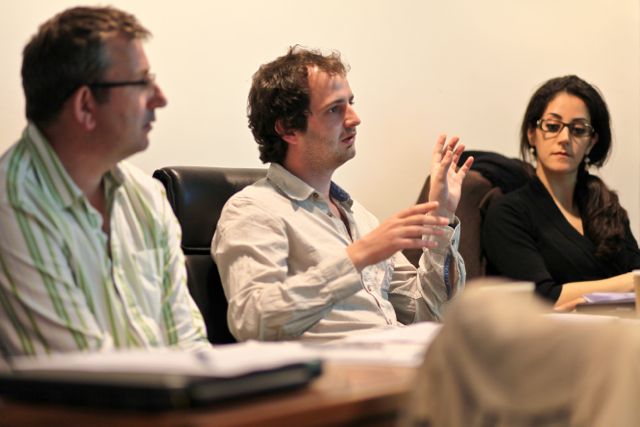



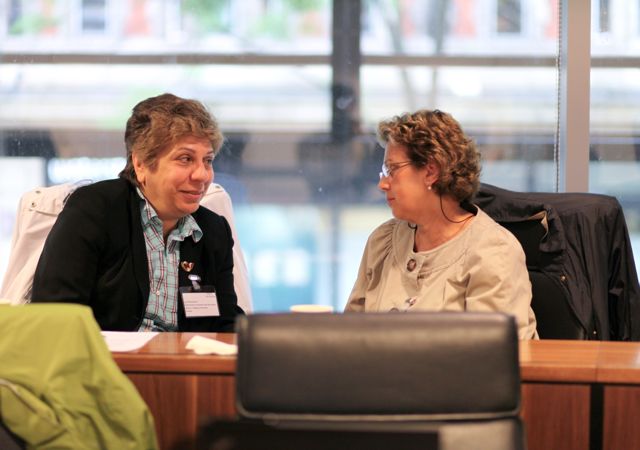
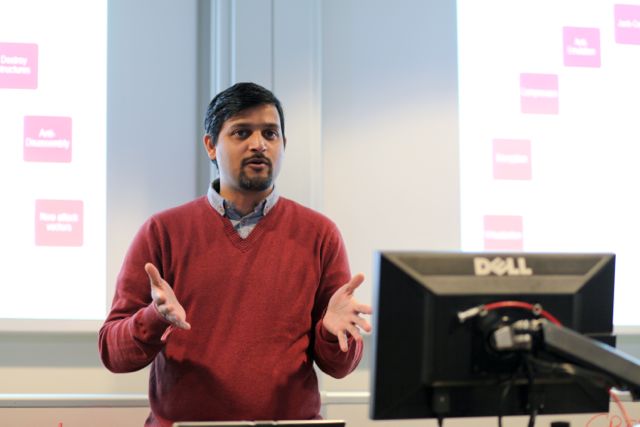


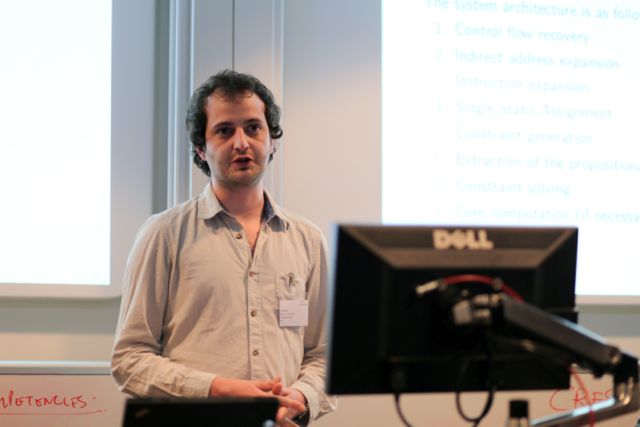

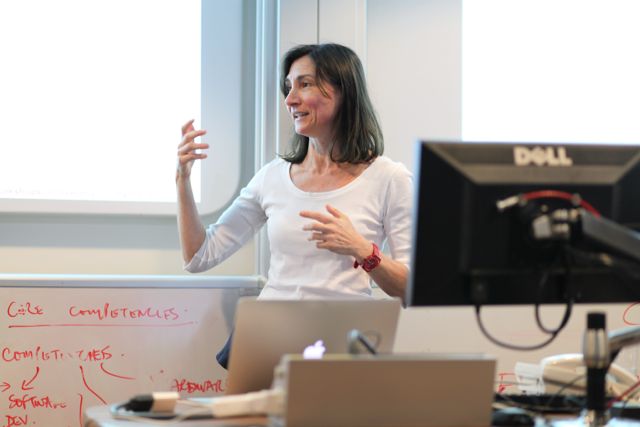
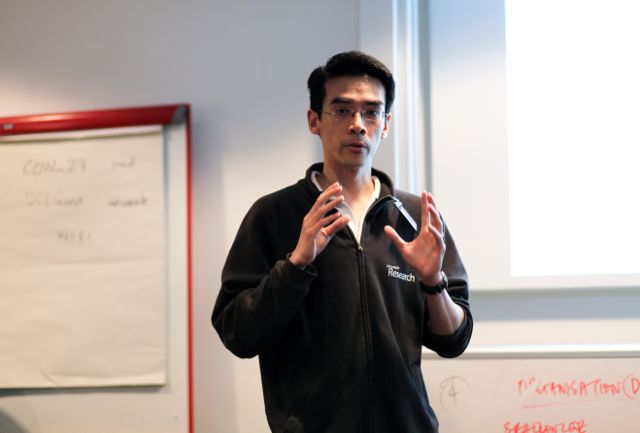
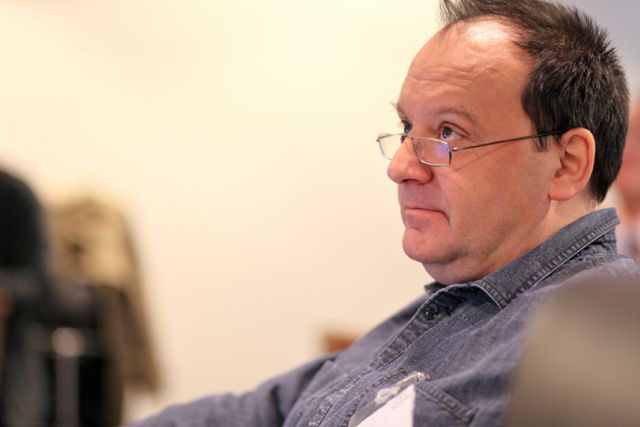
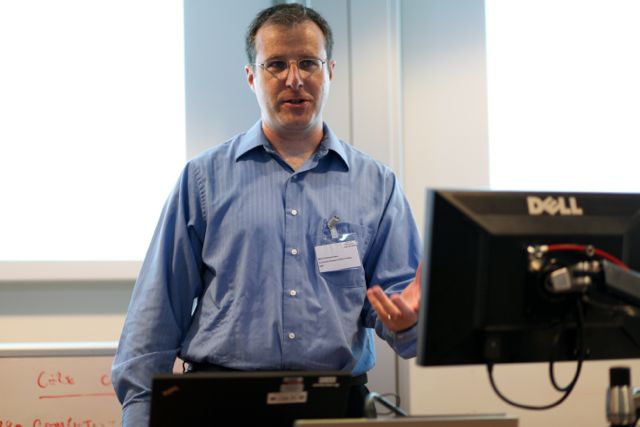
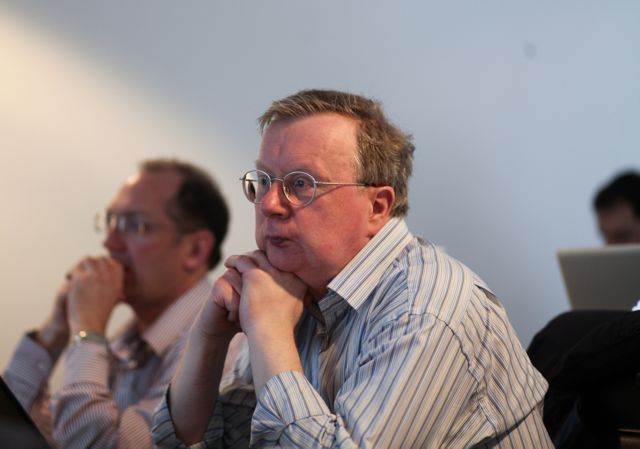
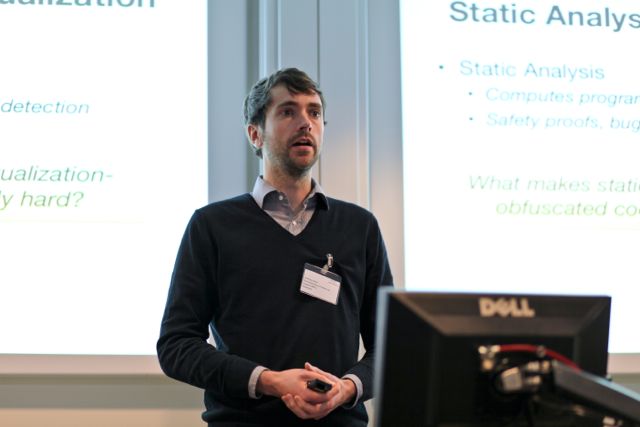
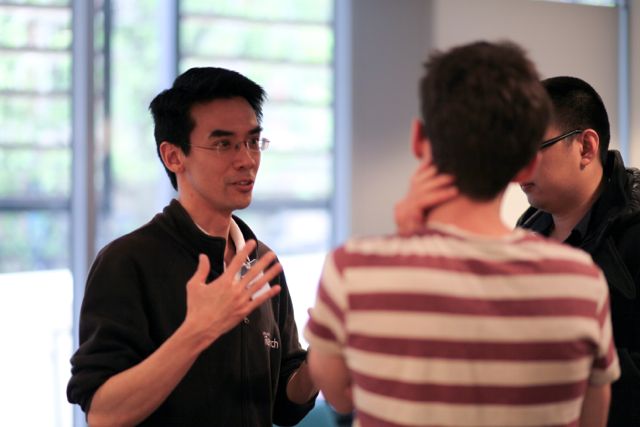
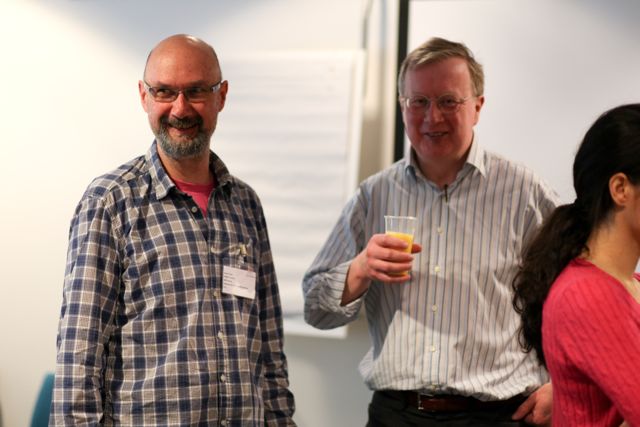


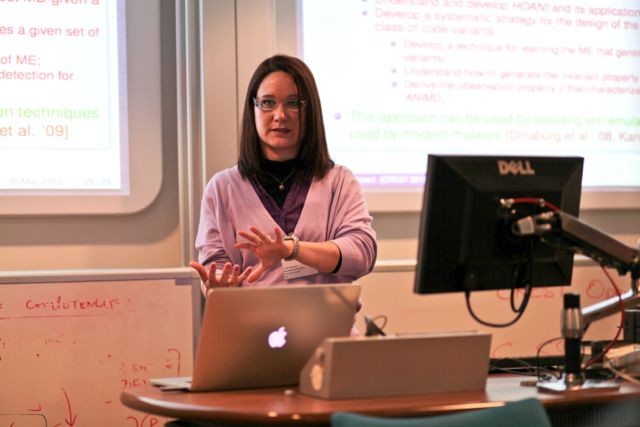



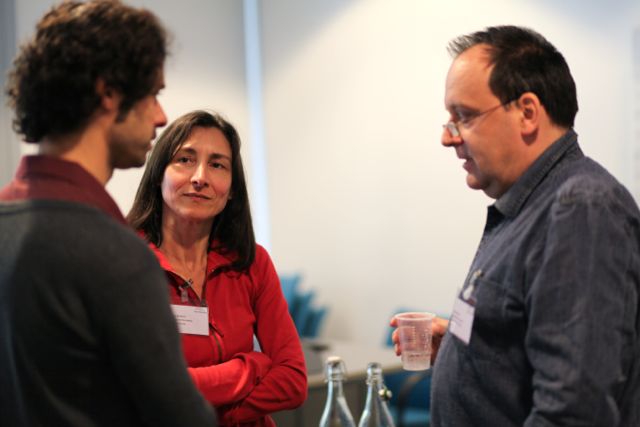

This workshop is supported by the following sponsors:
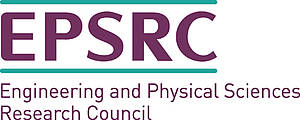


Registered Attendees: +++This workshop is now full and registration has been closed+++
- Zirak Allaf, School of Computing, University of Portsmouth, UK
- Tom Chothia, School of Computer Science, University of Birmingham, UK
- Mihai Christodorescu, Qualcomm Research Silicon Valley, USA
- David Clark, CREST Centre, SSE Group, Department of Computer Science, UCL, UK
- Mila Dalla Preda, Dipartimento di Informatica, University of Verona, Italy
- Alessandra Di Pierro, Dipartimento di Informatica, University of Verona, Italy
- Dino Distefano, Department of Computer Science at Queen Mary, University of London, UK
- Steve Dodier-Lazaro, CREST Centre, SSE Group, Department of Computer Science, UCL, UK
- Paolo Falcarin, Computing and Engineering (ACE) University of East London, UK
- Pooyan Farahani, Trinity Mirror Group Plc. and Imperial College London, UK
- Vida Ghanaei, Department of Informatics, King's College London, UK
- Prashant Gupta, McAfee Labs, UK
- Mark Harman, CREST Centre, SSE Group, Department of Computer Science, UCL, UK
- Syed Islam, CREST Centre, SSE Group, Department of Computer Science, UCL, UK
- Andy Jackson, UK Government, UK
- Yue Jia, CREST Centre, SSE Group, Department of Computer Science, UCL, UK
- Derek Jones, Knowledge Software, UK
- Mariam Kamkar, Department of Computer and Information Science, Linköping University, Sweden
- Wei-Ming Khoo, Computer Laboratory, University of Cambridge, UK
- Johannes Kinder, École Polytechnique Fédérale de Lausanne (EPFL), Switzerland
- Andy King, School of Computing, University of Kent, UK
- Jens Krinke, CREST Centre, SSE Group, Department of Computer Science, UCL, UK
- Daniel Kroening, Department of Computer Science, University of Oxford, UK
- Alexei Lisitsa, Department of Computer Science, University of Liverpool, UK
- John Lyle, Department of Computer Science, University of Oxford, UK
- Sergio Maffeis, Department of Computing, Imperial College London, UK
- Isabella Mastroeni, Dipartimento di Informatica, University of Verona, Italy
- Rabih Mohsen, Department of Computing, Imperial College London, UK
- Granville Moore, Research Institute in Science of Cyber Security, UCL, UK
- Kaustubh Nimkar, PPLV Group, Department of Computer Science, UCL, UK
- Justyna Petke, CREST Centre, SSE Group, Department of Computer Science, UCL, UK
- Steven Poulson, Department of Computer Science and Information Systems, Birkbeck, University of London, UK
- Ed Robbins, School of Computing, University of Kent, UK
- Nahid Shahmehri, Department of Computer and Information Science, Linköping University, Sweden
- Guangyan Song, Information Security Group, Department of Computer Science, UCL, UK
- Mark Vella, Department of Computer Science, University of Malta, Malta
- Herbert Wiklicky, Department of Computing, Imperial College London, UK
- Xiangjuan Yao, CREST Centre, UCL and College of Science, China University of Mining and Technology, China
- Faruque Sarker, ISD Application services team, UCL
- Nada Alruhaily, School of Computer Science, University of Birmingham, UK
